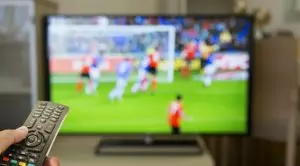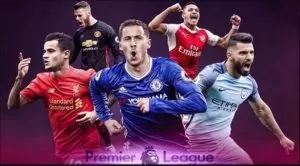 A parliamentary committee has heard that British bookmakers are considering to voluntarily suspend football shirt sponsorships and aggressive advertising away from the pitch. If the measure is truly rolled out, it would come as an expansion of the whistle-to-whistle ban on TV gambling advertising that was introduced in 2019.
A parliamentary committee has heard that British bookmakers are considering to voluntarily suspend football shirt sponsorships and aggressive advertising away from the pitch. If the measure is truly rolled out, it would come as an expansion of the whistle-to-whistle ban on TV gambling advertising that was introduced in 2019.
A few days ago, the Select Committee on the Social and Economic Impact of the Gambling Industry that operates as part of the House of Lords had a meeting to take evidence for some representatives of the local gambling market. Top executives at five of the largest British gambling companies were present at the meeting, with the Chair of the Betting and Gaming Council (BGC) Brigid Simmonds also attended the meeting.
Currently, 50% of the football clubs in the English Premier League (EPL), as well as 17 of 24 Championship clubs have a gambling company as a sponsor. This relationship between bookmakers and professional sport has led to concerns about the possible impact that extensive gambling advertising could have on football fans, especially when it comes to vulnerable people and children.
At the most recent meeting of the above-mentioned Committee, Ms Simmonds revealed that the previously imposed whistle-to-whistle ban has slashed televised gambling advertising by 85%.
Campaigners Insist On Reducing the Relationship Between Gambling and Professional Football
 Ms Simmonds from the Betting and Gaming Council faced questions whether the organisation that represents 90% of the gambling and betting industry in the UK was considering banning the logos of gambling companies from football kits and on-stadium advertising. She explained that the BGC was taking into account the situation regarding sponsorship issues in professional sport and would remain active about the issue.
Ms Simmonds from the Betting and Gaming Council faced questions whether the organisation that represents 90% of the gambling and betting industry in the UK was considering banning the logos of gambling companies from football kits and on-stadium advertising. She explained that the BGC was taking into account the situation regarding sponsorship issues in professional sport and would remain active about the issue.
The BGC’s Chair admitted that the gambling industry has been important to the UK and revealed that currently 106,000 people are employed in the UK gambling sector. The latter contributes around £14 billion to the country’s economy on an annual basis.
The BGC is willing to see gambling sponsorships to be responsible. Other anti-gambling campaigners have called for stricter measures on the relationship between gambling and football, asking for a full ban on such sponsorship agreements.
The owner of Ladbrokes and Coral, GVC Holdings, has already withdrawn from sponsorship agreements with football clubs. The company’s Chief Executive Officer has agreed that a wider move is needed in this area and shared an opinion that gambling companies need to take further steps when it comes to their relationship with professional sport.
The joint CEO of British gambling giant bet365 who is also vice-chairman of Stoke City FC, John Coates, admitted that he heard the concerns regarding the amount of advertising that is used by gambling companies. Mr Coates said the welcomes the review of the Gambling Act but further confessed that the football club the Coates Family owns mainly depends on the money the gambling company invests in it.
- Author


